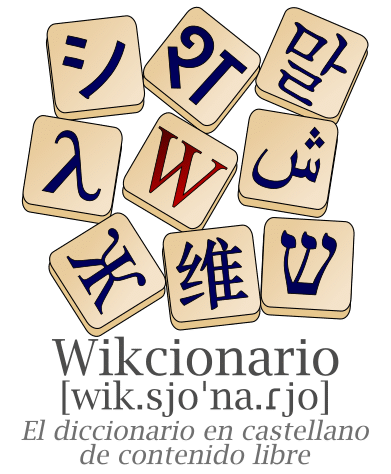
The 8 Best Spanish-Only Dictionaries Available Online
Immersing yourself in Spanish is the best way to learn the language.
That goes for looking up new words, too.
Using a Spanish-only dictionary will keep your brain in Spanish mode while expanding your vocabulary and comprehension.
They often provide more vocabulary and more complete coverage of the many uses of common words and phrases.
Here are the 8 best Spanish-only dictionaries on the market, all conveniently available online.
Contents
- 1. Diccionario de la lengua Española (Dictionary of the Spanish Language)
- 2. Diccionario de americanismos (Dictionary of Americanisms)
- 3. El País (The country)
- 4. Diccionarios.com
- 5. WordReference
- 6. Wikcionario
- 7. AsiHablamos.com
- 8. Google Images
- How to Use Spanish-Only Dictionaries
Download: This blog post is available as a convenient and portable PDF that you can take anywhere. Click here to get a copy. (Download)
1. Dictionary of the Spanish Language)
Commonly known as the DRAE, the Diccionario de la lengua española is put out by the Real Academia Española (Royal Spanish Academy), the official institution responsible for overseeing and regulating the Spanish language.
In its 23rd edition, the DRAE is conveniently online in a searchable format. It provides good coverage of both older literary words and modern words used in standard speech.
It’s not the best option for looking up slang, but it provides many different uses of common verbs as well as examples of how they’re used in phrases, and it covers Latin American as well as European Spanish.
2. Diccionario de americanismos (Dictionary of Americanisms)

This online dictionary tool comes from La Asociación de Academias de la Lengua Española (The Association of Spanish Language Academies). It’s a comprehensive reference for understanding the rich linguistic diversity of Spanish as spoken in the Americas.
The dictionary is an authoritative resource that compiles and explains the various words, phrases and expressions used across Latin America, the Caribbean and other Spanish-speaking regions in the Western Hemisphere.
With entries that encompass both standard Spanish and local idiomatic language, it’s a valuable tool for Spanish learners and anyone interested in exploring the unique linguistic tapestry of the Americas.
3. El País (The country)
On this website, the Spanish newspaper El País provides a convenient dictionary tool where you can look up words in Castellano (Spanish only), Spanish-English, English-Spanish or Synonyms-Antonyms.
When you look a word up in the Castellano dictionary, synonyms and antonyms are conveniently provided after the definitions, as well as some example sentences.
This tool is completely free to use and the interface is very user-friendly. The only downside is that this site has pop-up ads which can be annoying, but there’s always a tradeoff for free services. Overall, it’s a great tool for finding definitions quickly and easily.
4. Diccionarios.com

Diccionarios.com provides a wide range of dictionaries, including monolingual and bilingual options, allowing users to look up words, phrases and translations and see the results from different dictionaries displayed on the same page.
It might feel a bit overwhelming at first, but once you get the hang of it you’ll see the wealth of information it provides and the benefit of having it all in one place.
The catch is that after five searches you have to pay for access. Still, the site’s regular Spanish-only and Spanish-English dictionaries are completely free and can be used together simultaneously.
5. WordReference
This well-known dictionary site has a Spanish-only feature! Just choose “Spanish: definition” if you’re on the English version of the site.
This tool provides a plethora or information conveniently gathered into one place. Once you search for a word, you’ll get its definitions, grammar information and example sentences.
You can also click on links to other pages. For example, click on “imágenes” to open a new tab with search results for the word in Google Images. Click on “definición RAE” to open the word’s definitions from the first dictionary on this list. At the bottom of the page, you’ll find links to forum discussions with the word in the title.
6. Wikcionario

Wikcionario is an online, collaborative resource that functions as a comprehensive reference for the Spanish language. Like other Wikimedia projects, it’s community-driven and freely accessible.
Its collaborative nature ensures that the content is continually expanded and refined. It also means that you can find common colloquial phrases and slang meanings, and it even says in which countries the meaning applies.
Certain words in the definitions are also linked to their own definition pages, which is useful for fully understanding the word and learning additional vocabulary. The downside to this resource being editable by anyone is that you can’t always be sure that its definitions are 100% accurate.
7. AsiHablamos.com
AsiHablamos.com is an online Spanish dictionary tool that offers a unique perspective on the language, focusing on colloquial and regional expressions from Latin American countries.
This resource is a valuable reference for those interested in understanding the diverse linguistic variations within the Spanish language. It provides definitions, examples and insights into slang, idiomatic phrases and local terminology used in different Spanish-speaking regions.
When you look up a word, it gives you the different meanings it carries in different countries. It’s a dynamic platform, continually updated by contributors from various countries, making it a living record of the ever-evolving Spanish language.
8. Google Images

While it’s not technically a dictionary, Google Images is a useful tool for figuring out what a word or phrase means in Spanish.
If you’re looking up something that you suspect has a visual component, it’s a great way to get a full sense of a word.
This also helps to keep your brain in Spanish-only mode, because you’re associating an image with the Spanish word rather than translating it into English. It’s like looking at flashcards, but you’re doing the action of searching for the word rather than flipping the flashcard around.
How to Use Spanish-Only Dictionaries
The Spanish-only dictionaries above will help you immerse yourself in the language to such an extent that you start thinking in it.
To maximize their effectiveness, combine them with other resources that can put the words you learn into further context. Ideally, these resources should also be fully in Spanish.
- Consume authentic Spanish media such as books, TV shows and movies to see the vocabulary you learn in action. Pay careful attention to what you read and hear. Make sure you have your dictionary on hand in case you need to look up or review any words you encounter.
- Use an immersion-based language learning program like FluentU, which teaches with authentic Spanish videos equipped with interactive subtitles, flashcards and quizzes. The subtitles work like a dictionary—when you click a word or expression, you get its definition, pronunciation, grammar details and example usages.
- Find a language exchange partner or Spanish-speaking expert in your field of interest. They can answer your questions about certain words or phrases and help you practice using them in the context of a real Spanish conversation.
These Spanish-only dictionaries will help improve your comprehension and expand your vocabulary without taking you out of Spanish mode.
Choose one or two that fit your needs and start learning with ease and convenience!
Download: This blog post is available as a convenient and portable PDF that you can take anywhere. Click here to get a copy. (Download)








